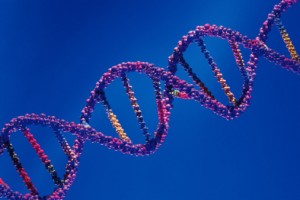
On Monday, the U.S. Supreme Court will hear oral arguments in a case that asks a central question: Can you patent a human gene?
Are genes naturally occurring and therefore not patentable by law? Or, since DNA must be extracted and processed to be read, is it no longer a natural product and so indeed can be patented, as human genes have been for 30 years?
Over at KQED Science, reporter Lauren Sommer has a great breakdown of the issues in this case -- not only the ethical questions but also the business angle, so critical to the Bay Area's thriving biotechnology industry.
But let's take a step back and look at the genes at the heart of the case, BRCA1 and BRCA2. According to the National Cancer Institute, these genes help keep cells' genetic material in order. They handle what's called tumor suppression.
Everyone has these genes -- women and men alike -- but the question is whether you have a mutation in one or both of these genes that inhibits the tumor suppression function. With impaired tumor suppression, you're at higher risk for cancer. Women with certain types of BRCA mutations are five times more likely to develop breast cancer and at least 10 times more likely to develop ovarian cancer. Both women and men with these mutations are also at increased risk for other cancers, including pancreatic cancer, prostate cancer and melanoma.